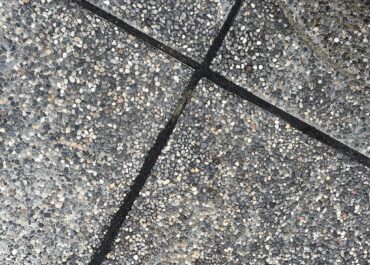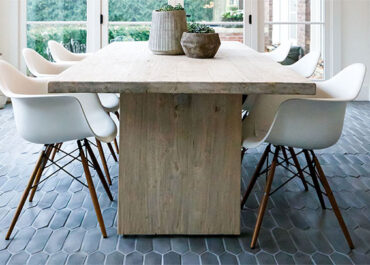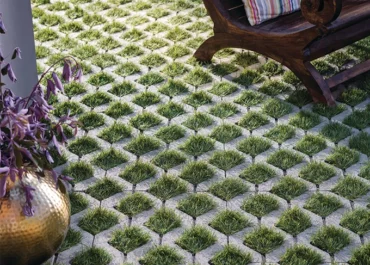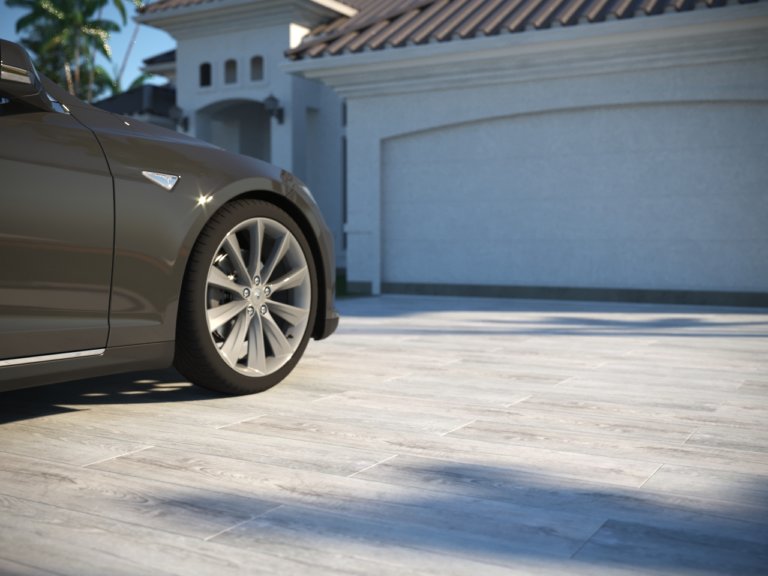
During recent years, porcelain pavers have dominated the hardscape industry. Many people have to come to know and understand how good they are, but many still don’t pay them the respect they deserve. Today, we are going to talk about them. Let’s explain why they are considered the best option for high traffic areas. This is a guide to vehicular porcelain pavers.
If the image you have of porcelain is that of the delicate material used as tableware, you couldn’t be more wrong. Porcelain pavers are amongst the most resistant, sturdy and cost-efficient pavers out there. And they grow in popularity day after day.
Porcelain pavers have a lot to prove to be deemed “the most powerful pavers”. They need to outclass all the natural stone pavers and, most importantly, its closer contestant: concrete pavers. In fact, many people still defend that concrete pavers are still the best in the market.
And while we can agree that concrete pavers are indeed very good, we are here to defend our point of view that porcelain do manage to be better. So let’s start our article by explaining how vehicular porcelain pavers are made. Then we move on to their applications and what makes them so good.
Vehicular Porcelain Pavers
Porcelain pavers are so resistant and easy to maintain that they are often the choice for the heaviest applications out there, such as vehicular traffic and industrial flooring. What we call vehicular porcelain pavers are the 20 mm variation porcelain.
This thick blocks of porcelain are incredibly sturdy. They are resistant to shock, can withstand heavy load and pressure, and are resistant to stains. This resistance to stain is due to the non-porous quality of porcelain, thanks to its fabrication process.
In fact, the main features of porcelain pavers are developed ever since the first steps of the fabrication process, so let’s expand on that a bit.
What Exactly are Porcelain Pavers?
The manufacturing process of porcelain pavers involves a unique combination of materials: high quality clay, quartzitic sand, feldspar and kaolin.
These materials are mixed together until they become a very fine combination of particles, almost like a lubricant. The resulting substance is then left to dry until almost no water remains.
At this moment, the material is colored, combined, and pressed into a mold to get the desired shape and pattern. Afterwards, the porcelain goes to a kiln, where it is cooked in temperatures as high as 2,2000 °F.
It is at this moment that the kaolin present in porcelain becomes a form of glass, through what we call a vitrification process. This is what gives the porcelain its non-porous characteristic.
Standard Thickness vs Vehicular Thickness
Porcelain pavers come in two variations: standard thickness (between 8 and 10 mm), and the 20 mm thickness, which can be used for vehicular purposes.
Standard thickness pavers are more commonly used for interior designs and outside hardscape patio projects that don’t involve a lot of heavy traffic. Even so, they are still incredibly resistant and maintain their non-porosity characteristic.
Now the 20 mm thickness variation is where things get serious. You will hardly find a more resistant paver in the market. Not only that, they will stand the test of time and weather effects, as long as they are properly cared for.
Maintenance of Porcelain Pavers
And speaking of caring for your pavers, the maintenance of the porcelain ones couldn’t be simpler. While many natural stone pavers need specific, and sometimes expensive, specific products, porcelain paver only require a clean cloth, warm water, and mild soap.
As long as you sweep regularly to keep it free from debris and perform a deep cleaning every month or so, your pavers will last a lifetime and maintain their pristine appearance.
The non-porosity of porcelain pavers is extremely important for vehicular applications. If there’s vehicular traffic, there would be oils spills and tire marks. Cleaning this type of stain from porous pavers can be extremely complicated.
But with porcelain pavers, there is not a problem at all. That is why it is a top choice for driveways and garages.
Also, since they are non-porous, porcelain pavers do not need to be sealed, whereas other options would require sealing every two years or so. That is a huge advantage and a good amount of time and money saved in the long run.
Porcelain Paver Installation
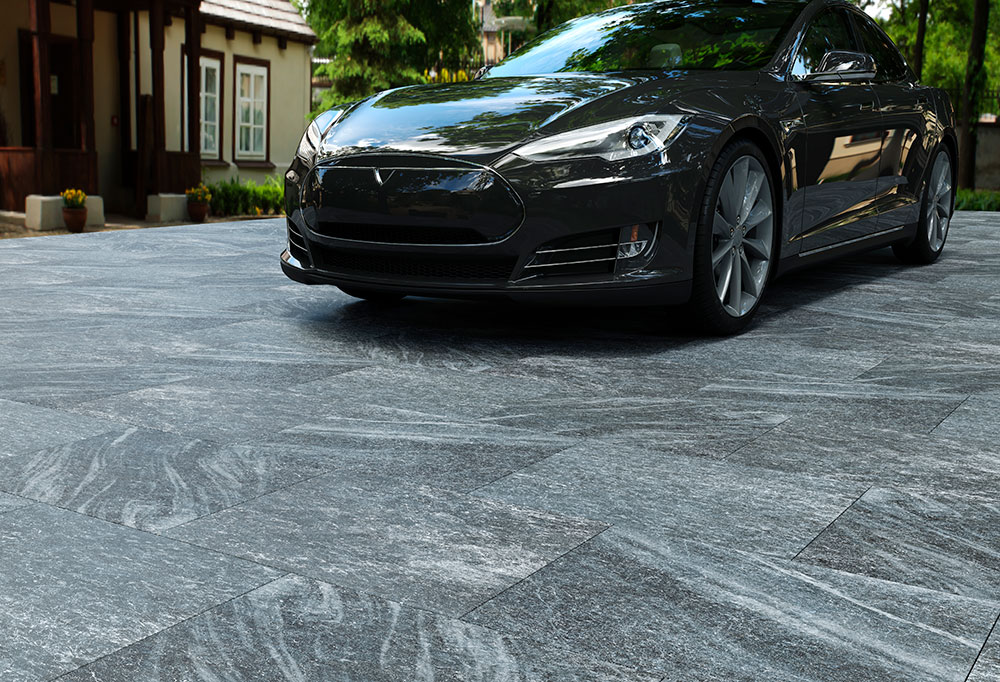
But for all its benefits, porcelain pavers have one disadvantage over other options: they are harder to install from a DIY perspective.
Porcelain pavers, especially the 20 mm thickness variations, are very heavy, and sometimes too big for one person to handle. The best course of action with porcelain pavers is to hire professional help.
Qualified hardscape professionals can guide you through the whole process. This holds especially true for porcelain pavers, but it still the case to any kind of paver installation.
Pavers are an investment that add value to your home, so you want the best possible job. There are a lot of things that can go wrong during a paver installation, and some homeowners are not willing to take the risk.
We here at Eagle Pavers have helped countless homeowners with their paver installation during our 12 years of activity. We know the importance of working closely and adapting the situation to our customers needs, so we highly recommend you search for a professional in your area.
And if you happen to be around our area of activity, the Sarasota and Manatee counties, in FL, why not give us a call to help you?
You can contact us right now at +1 941-210-4192 or email us at sales@eaglepavers.us. We would be happy to hear from you and help you with your project.


